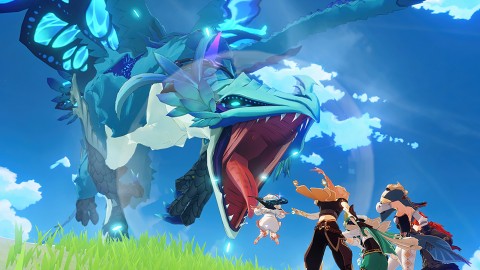NME Music News, Reviews, Videos, Galleries, Tickets and Blogs | NME.COM

Over nine hours, I’ve tried to escape from Hades a dozen times, but my last attempt was easily the most heartbreaking. I had acquired my best build yet and made it to Elysium with three extra lives in tow. I was on top of the underworld. But then came the Soul Catchers, and their hordes of buffeting butterflies. My luck ran out and my confidence unravelled, as I burned all of Zagreus’ extra lives across two measly rooms.
It was a valiant effort when I stumbled into the boss door, but as per usual, I got my cheeks smacked by professional jobsworth Theseus and his endearing (if not slightly bullish) partner. Ultimately, there’s no one to blame but myself as, mechanically, the video game Hades is a peach.
If only I’d worked out the kinks in my own head and kept my reflexes in check, I probably could have toppled my nemesis. But it wasn’t meant to be. I’d lost my nerve. So, as usual, I was dragged back to the marble waiting room to deal with the jeers and jabs of my deadbeat dad.

Beyond some crass jokes from the God Of Death, Hades isn’t really in the business of making you feel bad about failure. Instead, Supergiant Games has systems in place that carefully impart a very mindful moral: There’s value in every defeat.
Now don’t get me wrong, that is the modus operandi of most roguelike games. They’re designed to nurture persistence, but none that I’ve played achieve that goal quite like Hades. Other games in the genre usually make capital their god, with arbitrary upgrades to look forward to, urging players to try again so they can earn more resources and feed the machine. It creates this very fast feedback loop, where you’re hammering the button to restart out of pure frustration, dooming your next attempt as you regress into a tilted downward spiral.
Hades flips this fiscally-focused design on its head and makes the intermission the most important part of the game. You certainly could embrace your rage and dash to the doorway, but you’d be missing out on the most valuable resource of them all: friendship. Not to sound like Barney The Dinosaur, but Hades’ cast of killer comrades make purgatory palatable, and the moral backbone of the game has real-life ramifications.
It works because the typically omnipotent gods in hell’s waiting room are all written with fallibility in mind. When you strike up conversations in the wake of a valiant defeat, you get the impression that these people know failure just as viscerally as you do. They own it, and persist in spite of that. Hopefully you will too.

Hypnos clearly hates his job – he’s asleep half the time you speak to him – but regardless, he always has something uplifting to say about your last run, even if it is existential in nature. Achilles fills in the void of comfort that Zagreus’ father won’t provide. When he talks about your last attempt, he comes across as a distant, wounded uncle who wants what’s best for his “lad” Zag, but his hard shell won’t let him be so frank with his emotions. Nyx is the opposite – incredibly frank given her unknowable toil, but in doing so very constructive. Meanwhile Meg is standoffish with purpose, her jabs at Zag goading out untapped energy while hiding a painful past.
The imperfect parts of their personalities humble the player and work to mitigate the frustration. What I find so important about this approach is its application to reality. I’m sure I’m not alone in saying that it took many failures to turn me into who I am today. Trying anything in life requires a degree of failure, but being able to value and own those failures can be a difficult process.
Especially in online communities, we’re not incentivised to represent hurdles in our personas. This creates a competitive environment that feeds on results rather than what it took to achieve them. As a writer, I often have several pitches rejected before I land a story, but it still feels unusual to talk about my batting average. Usually, I just post the finished article, and leave it at that.

But playing Hades is making me ponder just how unrepresentative that is of what it took to achieve that little victory. I failed on my way to get here, and it was a valuable part of the process. Dear reader, you’ve probably encountered multiple setbacks on the way to achieving your ambitions, whatever they may be.
That’s a very healthy thing, and it’s something that we should do our best to own. I remember when I first learned through moments of candour that some of my own role models had failed. Knowing that the gods I had put on a pedestal were just as fallible as I am was shocking, but it also gave this mere mortal the motivation necessary to persist when everything felt hopeless.
Hades understands this sentiment better than any game I’ve played, and through clever character writing and genius game design, provides an important reminder of the incredible value of failure.
The post Video games are all about failure, but none more so than ‘Hades’ appeared first on NME Music News, Reviews, Videos, Galleries, Tickets and Blogs | NME.COM.







